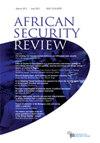Rwanda's securitisation of genocide denial: A political mechanism for power or to combat ontological insecurity?
IF 1.1
Q3 INTERNATIONAL RELATIONS
引用次数: 5
Abstract
ABSTRACT This article examines the concept of genocide denial as a security threat within the case study of Rwanda. Rwanda experienced the 1994 Genocide Against the Tutsi when an estimated 800,000 Tutsis and politically moderate Hutus were butchered by extremists within a one-hundred-day period. Since the ending the genocide the Rwanda Patriotic Front (RPF) continues to dominate the post-genocide nation's political sphere. The remnants of genocide perpetrators initiated Rwanda to militarily and politically intervene in neighbouring Democratic Republic of the Congo (DRC). Since the end of the Second Congo War in 2002, Rwanda's security interests shifted from fearing the destruction of the state to ontological insecurities founded on a threat of genocide ideology. This research examines whether Rwandan President Paul Kagame and the RPF mobilises genocide denial through a securitisation framework as a method to legitimise its control over the nation's political institutions and to deflect criticism. However, by examining the deficits within this discourse, it becomes possible to understand how Rwandans perceive genocide denial as part of a large threat that is a repetition of the genocide.卢旺达种族灭绝否认的证券化:权力的政治机制还是对抗本体论不安全感?
摘要本文在卢旺达的案例研究中探讨了否认种族灭绝作为安全威胁的概念。卢旺达经历了1994年针对图西族的种族灭绝,当时估计有80万图西族和政治温和的胡图族在一百天内被极端分子屠杀。自种族灭绝结束以来,卢旺达爱国阵线(爱国阵线)继续主导种族灭绝后国家的政治领域。种族灭绝肇事者的残余促使卢旺达对邻国刚果民主共和国进行军事和政治干预。自2002年第二次刚果战争结束以来,卢旺达的安全利益从担心国家毁灭转变为基于种族灭绝意识形态威胁的本体论不安全。这项研究考察了卢旺达总统保罗·卡加梅和卢旺达爱国阵线是否通过证券化框架动员否认种族灭绝,将其对国家政治机构的控制合法化,并转移批评。然而,通过研究这一论述中的缺陷,可以理解卢旺达人如何将否认种族灭绝视为种族灭绝重演的巨大威胁的一部分。
本文章由计算机程序翻译,如有差异,请以英文原文为准。
求助全文
约1分钟内获得全文
求助全文

 求助内容:
求助内容: 应助结果提醒方式:
应助结果提醒方式:


